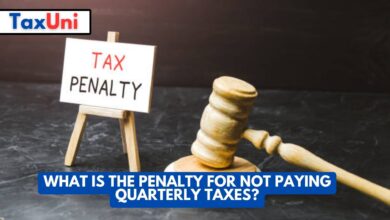Tax Day for Individuals Ends on May 17, 2022

On March 17, the IRS (International Revenue Service) and the Treasury Department announced that the federal income tax filing due date was automatically extended to May 17, 2022. The due date was set for April 15. Moreover, a detailed guide is shared on the official website of the IRS.
The IRS Commissioner, Chuck Rettig, emphasized that the IRS is trying to help taxpayers cope with the unexpected circumstances they are going through due to the economic regression and the pandemic. They try to do everything possible to make the jobs of taxpayers easier for their tax administration responsibilities.
He also advised taxpayers to submit their filing as quickly as possible, especially those who will receive a refund. As you might already know, filing electronically with direct deposit is the best and fastest method to get your refunds. In general, these operations are concluded within one to three weeks on average.
Individual taxpayers can file their federal income tax payments until May 17 without any interest, extra charges, or penalties. In addition to this, there is no minimum or maximum owed balance requirement to benefit from this opportunity.
On the other hand, it is worth noting that this opportunity is offered only to individual taxpayers, including those who pay self-employment tax. If you fail to file your federal income tax payment, you will be charged with penalties, additions, and interest for your unpaid balances starting from May 17.
You don’t have to file any forms or contact the IRS to benefit from this federal tax filing relief. If you need additional time to file your federal income tax beyond May 17, you need to file Form 4868 until October 15. You can file your form through IRS.gov, tax software, or a tax professional.

Additionally, you need to know that filing the form doesn’t require an extension for your due taxes. You still need to pay your taxes until May 17 to avoid penalties. Another important point about this relief is that it does not cover the estimated tax payments, which will be due on April 15. You still need to pay your tax through estimated tax payments or withholding for the income you earned during the year.
Taxpayers who earn income from rental, alimony, dividends, interest, or self-employment income are not subject to income tax withholding. They need to pay their estimated tax payments to the IRS quarterly. Most taxpayers already pay their taxes through their paychecks, which are withheld from their paychecks and submitted by their employer to the International Revenue Service.
Is State Tax Returns Extended Too?
Unfortunately, state tax payments, deposits, or payments for federal taxes are not extended. Their due date is April 15 of each year. Only the individual federal income tax and return tax filing deadlines were postponed to May 17.
Taxpayers in all states, including Columbia, still need to file income tax returns. It is worth noting that the deadlines for the state filing and payment vary depending on the state, and they do not have to be the same as the federal filing deadline. You can check the deadlines on the IRS page.





